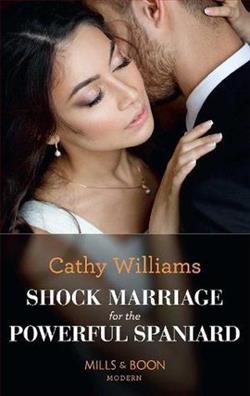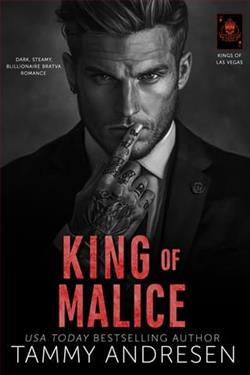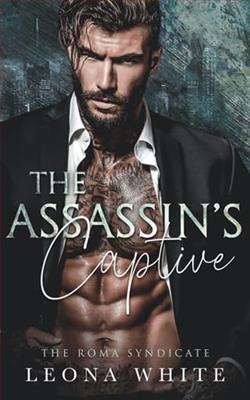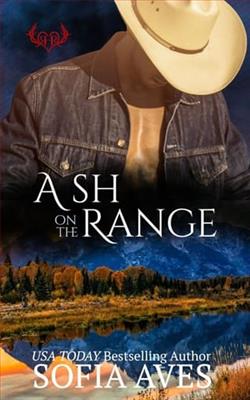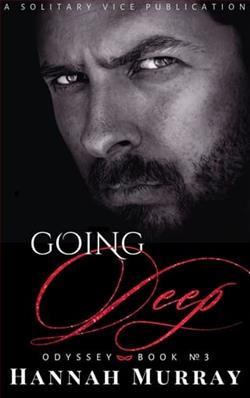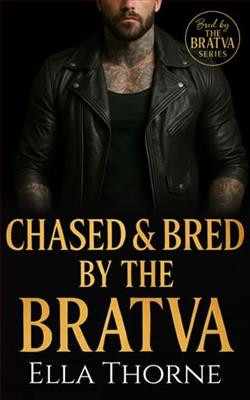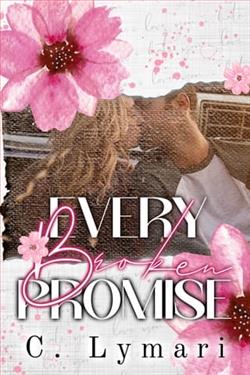Page 49 of The Dragon Ring
I’d been to Viroconium as a child. My father took me to visit the ruins of the gigantic bath house complex, which was all that could be seen above ground. In the twenty-first century, the majority of the city still lies buried under farmland, although archaeologists have a good idea of its size and layout. The part of me that was still a historian eagerly anticipated seeing something no modern scholar had ever seen, even though the rest of me viewed the approaching capital of post-Roman Britain with trepidation.
Long before we came in sight of the city, the land began to change. Left behind were the ridges of high ground with their wooded slopes and scattered sheep and cattle. Instead, we rode through rich agricultural lowland in the wide valley of the River Severn, a land of farms and prosperous, well-kept looking villages. It felt as though we’d reached the center of Dark Age Britain, heading to its beating heart with every step our horses took.
Nothing had prepared me for the city’s size, though. It dwarfed tumble-down Caer Baddan and abandoned Caer Ceri. Its sturdy walls stood tall, showing no signs of having been pillaged for building stone. The gates, standing open in daylight hours, looked impregnable.
Our road ran straight as a die toward the huge north-eastern gates of the city, past stubble fields and grazing livestock. The late afternoon sun was already nearing the western horizon, where the hills of Wales stood shrouded in low, grey cloud. Between a scattering of trees, the River Severn glinted, and a flock of crows swept across the open sky to come to roost in a stand of naked willows where a row of masts marked the city’s wharves.
We approached the gates, Arthur and Cei leading the column. Theodoric and Merlin rode behind them, while I had been promoted from my place toward the rear to ride behind Merlin, guarded by Bedwyr and Gwalchmei. As we were now so far from Din Cadan, and Merlin could no longer fear that I might run away, I reasoned it must be because he was anxious for my safety. Not a thought guaranteed to fill me with confidence.
The heavy gates banged shut behind us for the night. We were inside the capital of Dark Age Britain. An unwelcome shiver ran down my spine, and I wished, not for the first time, that we were still in Din Cadan. The farther we got from it, the more attractive it became.
Compared to Caer Baddan, Viroconium was a buzzing metropolis. The houses on both sides of the road had a well-to-do look about them. However, thatch had replaced the tiles on many of their roofs, and the plaster on their walls had flaked away in places to leave bare patches of brick and stone. Shops lined the road, and the smells of cooking mingled with the stench of unwashed humanity, of dogs and horses, of damp thatch and dirty gutters. This was like a much larger, more crowded version of Letocetum.
The streets thronged with people. Ox carts and horse-drawn wagons rumbled over the cobbles. A couple of boys drove a dozen reluctant sheep, and scruffy dogs ambled between the buildings, casually cocking their legs wherever they wanted. People ate in shop fronts, the men in tunics and braccae, or in flowing togas just as Bassus had worn, the women in an array of brightly colored gowns. Children ran about everywhere, getting in the way of our horses.
I stared about with interest, my anxieties pushed to the back of my mind as I took in the chaos that was the fifth-century capital of Britain. A different world to the earthily primitive Din Cadan, maybe an echo of what Imperial Rome’s cities would once have looked like.
Passing a building with a wooden balcony on its upper floor, I looked up to see several heavily made-up young women leaning over it, and this time I had no doubts about their profession. Seeing the column of warriors, they slipped off their cloaks to reveal plump white shoulders and expanses of cleavage, licking their lips suggestively and calling out bawdy, and slightly ambitious, suggestions as to what they could do for a man.
But this time no one was being side-tracked, not even Theodoric. The warriors rode past them without a second glance, their horses’ hooves loud on the cobbles. The disappointed calls of the women followed us down the road.
The Imperial Palace was the most Roman building I’d seen so far, dwarfing Bassus’ house in Caer Baddan. In startlingly good repair compared with the majority of the city’s buildings, it still boasted most of its red-tiled rooftops. Someone had even taken the trouble to patch up the flaking walls. The fresh patches stood out against the old plasterwork.
The stables stood outside the Palace in a low wattle-and-daub building of much more recent construction, surrounding a cobbled courtyard. We dismounted, and a servant came running to take Theodoric’s horse. Two more took Arthur’s and Cei’s. Ignored by them all, I stood holding my reins, feeling lost and insignificant.
Merlin came to my rescue. He caught the arm of a passing stable boy. “Here, take the lady’s horse. She’s coming with us.” He turned to Arthur. “We shouldn’t leave her here unchaperoned.”
Arthur nodded, but he was clearly distracted. Probably worrying about seeing his father for the first time in years. Or maybe worrying his father might already be dead. Or hoping he was.
“We’d better take our own guard with us, too,” Theodoric put in, slinging his helmet on the horn of his saddle. “We shouldn’t take any risks.”
Cei commandeered a dozen of Arthur’s warriors to accompany us.
I followed them out of the stables and across the narrow, cobbled road to the main entrance to the palace. Huge double doors studded with iron blocked our path. Two guards stood on either side, spears in hands, swords on hips. The plumed Roman helmets on their heads made them tower above even Cei and Theodoric.
“I don’t like the look of this,” Cei muttered to Arthur, loud enough for me, walking just behind them, to hear. “This place has taken on the look of somewhere you go into but never come out of.”
A bit like Din Cadan then.
“Cadwy wouldn’t dare.” Arthur sounded confident of his welcome.
I wasn’t.
“We won’t be the only visitors here,” Theodoric said, keeping his voice low. “The Seneschal sent messengers to all the members of the Council of Kings. Some will undoubtedly already be here.”
“Cadwy’s too clever to do anything in front of witnesses,” Arthur said.
Merlin put his hand on the hilt of his sword, fingering the ornate carving, his face wary. The hairs on the back of my neck stood up, and my heart rate rocketed.
The guards stamped the butts of their spears hard on the cobbles and two of them threw open the doors for us. We walked inside.
“Too late to turn back now,” Cei hissed to Arthur as the doors closed behind us with a resounding thud.
We were in the vestibulum of the palace, which opened into the atrium. So were a great many other people who all turned to stare at us. Some, mostly the younger men, were dressed in British braccae and tunics, while others, mostly the grey-haired, wore Roman togas. There were no women. I was glad I was disguised as a boy, although I had no confidence that close scrutiny wouldn’t give me away.
There was a long silence.
“Prince Arthur.” A man in a toga, with thinning grey hair cut very short, stepped forward, his arms held out, his bland pink face the picture of fawning welcome. He clasped hands with Arthur and then put his arms around him, holding him for a moment. Who was this? Not Arthur’s father, surely, who was supposed to be on his deathbed? Whoever it was, I was deeply suspicious of him. Too oily by half.








